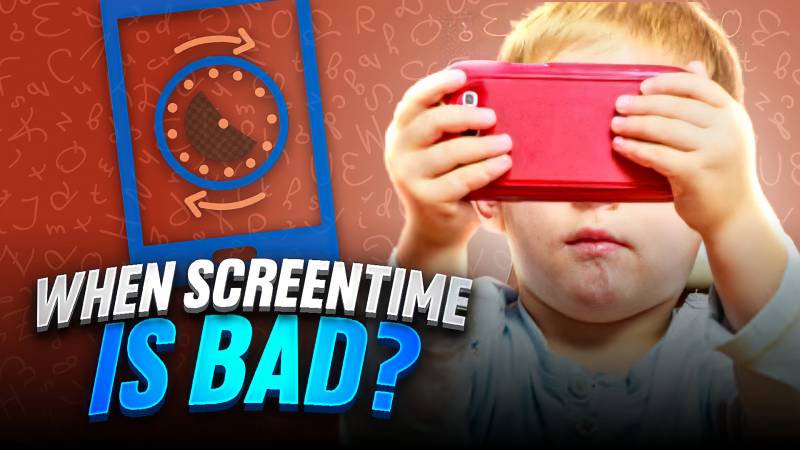
Struggling with when and how to use screens for your kids? Learning Success has some valuable insights to share! Discover how to strike the right balance and empower your child's emotional growth.
Navigating Screen Time for Kids: Balancing Benefits and Boundaries
The Right Way to Introduce Electronics to Your Child's Routine
Have you ever used electronic devices as babysitters? It's a practice many of us are guilty of, at least to some extent. While electronics can be effective tools, there's a crucial aspect to consider – timing. It's important to find the best times to let your kid use electronics. This video will help parents use gadgets in a way that's good for their kids, especially if they find learning tough. If you find this video helpful, please subscribe and share it with other parents who could use the advice.
The Impact of Screens on Children
When my son was just two years old, I often turned on the TV to keep him occupied while I managed household tasks. However, this approach backfired, leading to meltdowns when it was time to leave the house. I looked into how screens can affect kids and found out they can cause problems like getting too hooked and even brain changes. It's crucial not to use screens as a quick fix for helping children regulate their emotions. Instead, we need to guide them through emotional challenges, fostering genuine self-regulation skills.
The Right Timing for Screens
Screens have become ubiquitous in our lives. So, when and how should we use them, especially with young children? There are three instances when using screens is not advisable. The first is during moments when we want a child to stay calm, preventing escalation. The second is when a child is already agitated, as screens won't help them regain equilibrium. When we want kids to behave, screens can make them listen, but they don't teach real self-control.
Building Self-Regulation Skills
Self-regulation, the ability to pause, think, and then act, is a skill that takes years to develop. Children learn it through interactions with others, not screens. While screens might appear to foster connection, they lack the depth of genuine human interaction. Excessive screen time can also lead to loneliness, as children become isolated from true social engagement. Kids need help to handle feelings, make smart decisions, and be patient. These are best learned by interacting with others.
Using Screens Wisely
While screens have educational potential, they can also create educational problems. Striking the right balance is challenging, especially for parents of struggling learners. The Learning Success System is a complete way to help kids get better at learning. A simple, step-by-step program that helps your child excel in school is just a click away.
Strategies for Calming and Guiding Children
When kids feel strong feelings or don't want to cooperate, parents have three ways to handle it. Firstly, using words wisely and knowing when to go silent can be effective. Secondly, being kind and understanding can calm a kid down way better than getting angry can. Thirdly, making things quieter and less messy can help kids control themselves better.
Empathy and Connection
Empathy plays a vital role in guiding children through emotional challenges. Showing understanding and compassion lets a child know that their emotions are valid and they're not alone in their struggles. When parents stay cool and show they care, kids can learn to handle feelings and control themselves better.
Reevaluating Screen Use
Children are undoubtedly exposed to screens in today's world. However, the frequency and timing matter significantly for their well-being. Knowing when to turn off screens - like when trying to calm kids down or get them to behave - is super important. Rather than using screens as a quick fix, parents can help kids handle tough feelings to learn real self-control.
Key Takeaways:
And, if you sense that your child is starting to become obsessed woth their device, do what thousands of other parents have done. Start a free trial of the Learning Success System.
Do You Need help with a Learning Difficulty?
Our simple online analysis will help you get to the core of the problem and find the right solution for you.
Understanding how to help someone with a learning difficulty starts with understanding which micro-skills are affected. When you learn which of the micro-skills is the problem, you will then be on your way to solving it.
You'll also learn how to:
- Build confidence
- Enhance Learning ability
- Eliminate avoidance
- Build grit
You can get this analysis for free by filling out this simple form. This will help you get to the bottom of a learning difficulty and provide you with a solution. If you are ready to put this problem behind you click the button below and fill out the form.










